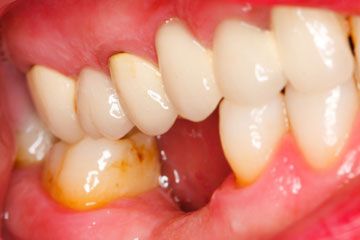When evaluating your risk of developing heart disease, your health care provider may assess your blood cholesterol and blood pressure levels, your activity level, your weight and your diet, among other factors. What if your doctor then followed up by asking how often you brush and floss your teeth? You'd expect that type of question at your visits to the dentist, sure, but at your family doctor? Studies are beginning to find that your teeth have a lot to say about your overall health.
Brushing and flossing at least twice every day is proven to help keep mouths healthy. Periodontal disease is inflammation and infection of the gums, tissues and ligaments that keep our teeth firmly in our mouths. It can be mild, in the form of gingivitis, or severe, manifesting as chronic periodontitis and tooth loss.
Advertisement
The most common cause of gum disease is plaque. When plaque, a sticky film of sugars, bacteria and mucus, is left to build up on teeth it can cause cavities, harden into tartar and create the perfect setting for gingivitis. In addition to plaque, there are personal and environmental pieces that factor in to the puzzle of who is at increased risk for developing gum disease, including smoking and tobacco usage, certain diseases such as diabetes, cancer and HIV, medications that cause dry mouth, female hormonal changes, such as puberty and menopause, and your genes.
Most people don't begin to notice symptoms of gum disease until they're in their 30s or 40s. Symptoms of gingivitis include tender, swollen, red or bleeding gums, sensitive teeth and -- this one may surprise you -- persistent bad breath. As the inflammation and infection become more severe, new symptoms such as receding gums, loose teeth, tooth loss and pain while chewing may arise. The inflammation and infection may affect your whole mouth or just a few teeth.
So are swollen gums really that big of a deal?
Yes, they are, and not just because they can lead to more damaging forms of gum disease and tooth loss. When it comes to predicting who is at increased risk for developing coronary artery disease, some common oral health maladies such as cavities, gingivitis and missing teeth rival cholesterol levels as indicators of the condition [source: Griffin]. Flossing, as it turns out, may help save you from having a heart attack.
Advertisement

